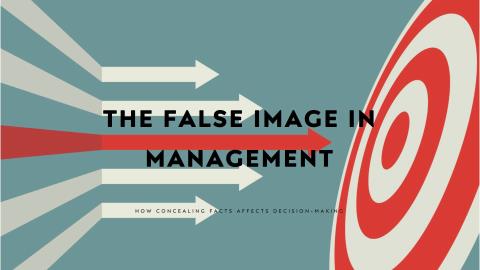Firstly, I would like to thank Mr. Jumaan AlAmri for raising this complex issue, which represents a major challenge in our Arab and African societies, and even at the global level. This issue is deep-rooted and appears at first to be without solutions, but in reality, solutions always exist and come from continuous thinking and striving to find a way out of these problems.
To solve any problem, we must understand its basis and causes and rank these causes in order of importance. The arrival of a false image to the decision-maker depends on several reasons that must be known:
- Address the problem of job security among junior employees.
- Address the problem of flattery and advancement at the expense of others to please the manager.
- Determine who is responsible for this matter, whether it is the work team or the advisors and administrators in senior positions. Most often, those in senior positions bear direct and indirect responsibility for the mistakes of the work team.
The root of the problem lies in the fact that junior employees always feel fear for their jobs, as they are the easiest to sacrifice and dismiss, and they often bear responsibility for the mistakes of the managers. The problem begins when a junior employee or even a sector manager discovers a major issue that may lead to significant financial losses for the organization, caused by a senior manager or the wrong policies of senior management. This employee finds himself at a crossroads: either he reveals this problem to senior management and risks losing his job, especially if there has been a similar incident where the employee who revealed it was fired, or he remains silent and ignores the problem.
To find the solution, we must go back and identify the reasons. Unfortunately, this problem is rooted in several key issues:
- The decision-maker does not advance from the bottom to the top within the institution, and even the owner of the institution may lack experience in the field.
- Relying on trusted individuals rather than experienced ones.
- Decision-makers and capital owners often rely on academic experts rather than those with practical experience, as they prioritize academic titles and certificates over practical experience.
- These academics are merely employees without the sense of ownership that a capitalist has, which is why they do not want to reveal the true situation of the enterprise until their last working day, leading to the sacrifice of junior employees.
Note: I do not object to venture capitalists or academics, but the problem lies in appointing those with trust and titles instead of those with competence, as trusted individuals often lack the necessary experience to manage the project effectively.
One successful solution in this case is for the capitalist to study medium and small companies in the field they want to invest in and buy one of these companies that faces a financial obstacle to expansion. He can agree with the previous owner to remain as director of the company while giving him a certain percentage of profits.
The problem is not with our abilities but with ourselves. We must learn how to share success and resources with others to achieve positive results at all professional, financial, and social levels.
Returning to the solutions to avoid such problems, there are two approaches:
- Starting at the top of the career pyramid.
- Starting from the bottom of the career pyramid.
Based on my experience, I prefer the first method, which is to start from the top of the career pyramid, as it will facilitate and speed up the reform process. The decision-maker must have the real will to address such a problem; otherwise, it will never be solved.
- The decision must be issued by senior leadership to be effective at all functional levels, ensuring that it is not circumvented or tampered with.
- Establish a communication channel between the head of the institution and all employees, even the most junior ones, so that everyone knows they can deliver their complaints to the head of the institution easily and without obstacles, bypassing their direct supervisors.
- Sanctions and incentives for all employees must be equal without any distinction based on job status. The decision-maker must be the only one aware of the complaints and reports received; otherwise, there will be no point.
- Of course, some restrictions must be placed on this channel to ensure that the complaint, its content, and the speed of its arrival are not affected.
I am discussing the creation of a complex system, and I will not delve into the details of the complaint system as it changes with each organization according to its functional structure and many other factors. This system should be designed by an independent consultant or an outside company to ensure neutrality and non-tampering.
We must always look at issues from a deep perspective, regardless of the size, dimensions, or cost of the problem. I hope I have succeeded in clarifying some points, and I am ready to answer any questions or inquiries regarding this topic or others.
Best regards,
By Mostafa EL Masry

